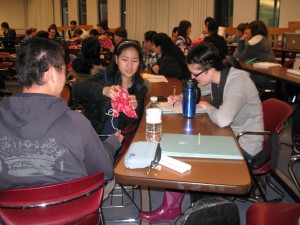And what a term it’s been! It’s certainly been busy and challenging, but I feel like I have learned a lot and I have had a ton of fun! This term I taught learners in two courses: the continuation of Intro Psyc (go section 6!) and Psyc 208 (a course I designed called How Social Psych Can Help You Succeed).
This year the students in my Intro Psych class were so wonderfully curious and engaged! I felt such great energy from them every day (some days more than others, but that’s normal!), and they truly inspired me to bring my “A game” every day (which I tried my best to do!). Here are some photos from our last day together. I had asked them to write their most important take-away message from this course. Take a look…
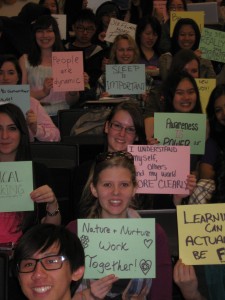
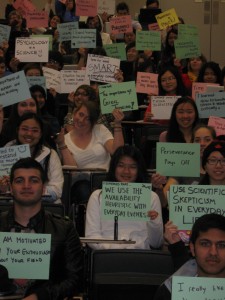
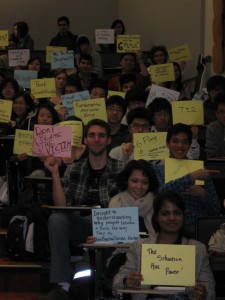
Last week in Psyc 208 we held the Creative Advertisement Showcase, which was a fantastic celebration of what they had discovered throughout the term! Previously, teams of students had identified a learning challenge they face, investigated primary sources for insight into understanding and addressing the challenge, and summarized those sources in annotated bibliographies and team abstracts. The purpose of the Creative Advertisment was to get the word out to fellow students about research-based techniques and strategies for addressing the learning challenges they face. They truly were creative! Projects ranged from video and live games to posters to live skits and demonstrations to videos and pamphlets… an impressive variety! Check out some of their videos and websites (ordered by team #)…
Team 7’s Learning about Distractions: https://www.youtube.com/watch?v=Lts-wX9L8q4
Team 9’s Learning Environments: http://psyc208.wordpress.com/
Team 12’s Sleep & Learning: https://www.youtube.com/watch?v=GaqQkImzagU
Team 15’s Stress Happens, Even for a Jedi: https://www.youtube.com/watch?v=ZnmYyz61Mys with website: http://ipixels.net/stress/
Team 18’s Technology Crackdown: https://www.youtube.com/watch?v=6zBCkhIoS74
Team 22’s Cultural Differences and Learning: https://www.youtube.com/watch?v=5jPW6tRA20w
And here’s a shot of Team 13’s interactive “Choose Your Own Adventure” study strategies station in action!
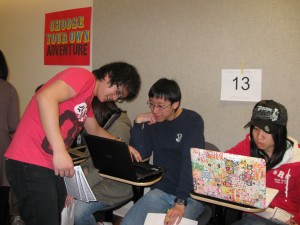
Thanks to everyone for a fantastic year! Study smartly for your finals… and remember that no matter how you do on them, that’s not a reflection of your worth as a person.

 Follow
Follow




